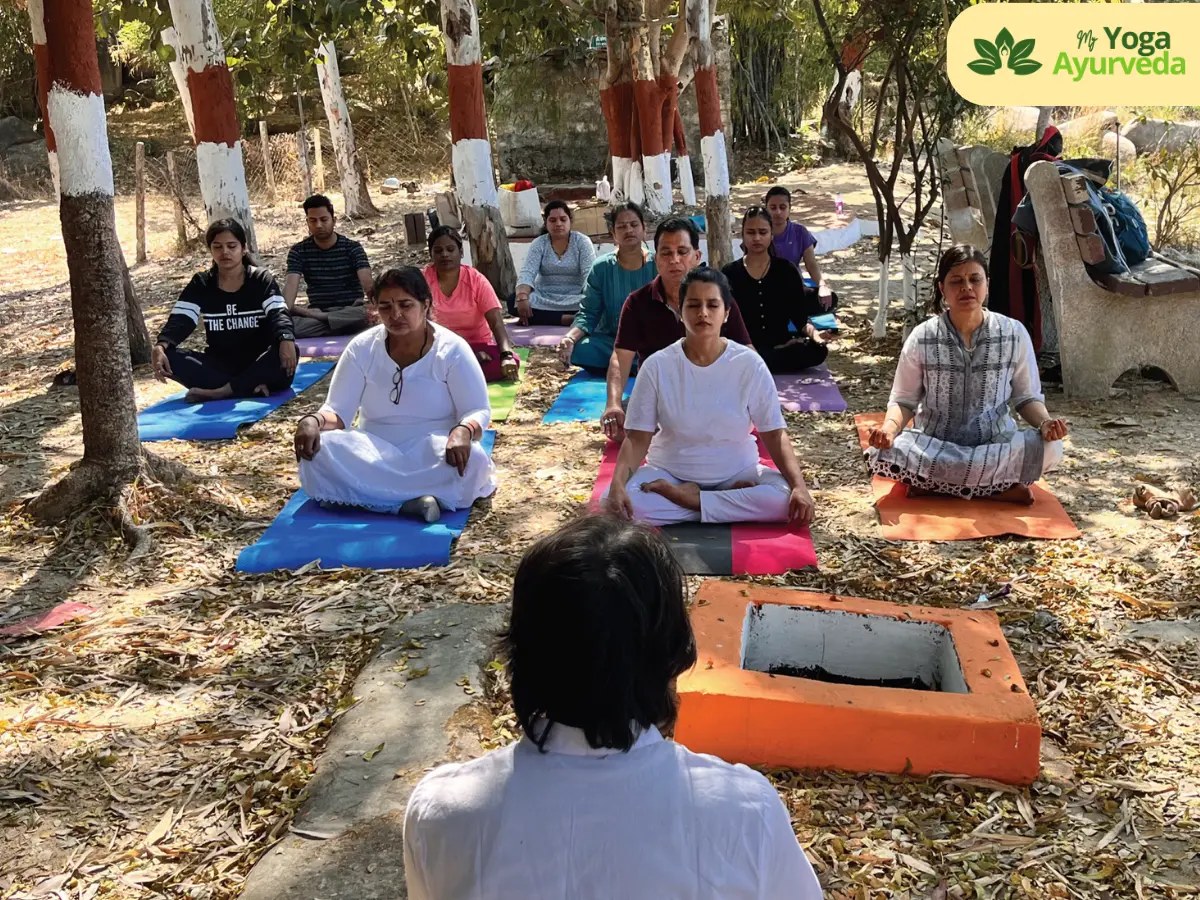
Written by Yoga Mentor Keshav, with facts sourced from Ancient Indian Ayurvedic and Yogic Textbooks, as well as scientific research.
Yoga has become a popular practice worldwide for its numerous physical and mental health benefits. Whether you’re a beginner looking to start your yoga journey or someone curious to learn more about this ancient practice, this comprehensive guide will provide you with a thorough understanding of yoga and its benefits.

What is Yoga?
Yoga originated in ancient India and is a holistic practice that encompasses physical postures, breath control, meditation, and ethical principles. It promotes balance and harmony in mind, body, and spirit, and aims to unite the individual self with the universal consciousness.
Benefits of Yoga
Research has shown that practicing yoga regularly can have a wide range of physical and mental health benefits. Some of the key benefits of yoga include:
Different Styles of Yoga
There are various styles of yoga, each with its own unique features and benefits. Some popular styles of yoga include:
Conclusion :
Yoga is a holistic practice that offers numerous benefits for both the body and mind.
Through its various postures, breathing techniques, and meditation practices, yoga promotes physical strength, flexibility, and balance, while also enhancing mental well-being, reducing stress and anxiety, improving sleep quality, and promoting better heart health, cognitive function, and immune function.
Research-backed evidence supports the many benefits of yoga, making it a valuable practice for individuals of all ages and fitness levels.
Whether you are a beginner or an experienced practitioner, understanding the fundamentals of yoga and incorporating it into your lifestyle can lead to improved physical health, mental well-being, and overall quality of life.
If you are interested in incorporating yoga into your routine, it is recommended to start with a qualified instructor or our online yoga classes to ensure proper form and safety.
As with any exercise program, it’s essential to listen to your body, practice at your own pace, and consult with a healthcare professional if you have any health concerns or conditions.
In summary, this comprehensive guide to understanding yoga and its benefits provides valuable insights into the research-backed advantages of yoga for overall health and well-being. By incorporating yoga into your lifestyle, you can experience the physical, mental, and emotional benefits that this ancient practice has to offer.
Start your yoga journey today and discover the transformative effects of this ancient practice on your body and mind. Namaste!
You can join our Online Yoga classes to get the maximum benefits of Yoga.
What is yoga?
Yoga is a physical, mental, and spiritual practice that originated in ancient India. It involves a series of postures, breathing exercises, and meditation techniques designed to promote physical health, mental clarity, and spiritual growth.
What are the benefits of practicing yoga?
A: Regular yoga practice can help improve flexibility, strength, balance, and posture. It can also reduce stress and anxiety, improve sleep, boost immune function, and promote overall health and well-being.
Who can practice yoga?
Anyone can practice yoga, regardless of age, gender, or fitness level. There are many different styles of yoga, and modifications can be made to accommodate individual needs and abilities.
What are some common types of yoga?
Some of the most popular types of yoga include Hatha, Vinyasa, Ashtanga, Power Yoga, Karma Yoga, Janan Yoga, Yin Yoga and Kundalini. Each style has its own unique characteristics and benefits.
Do I need to be flexible to practice yoga?
No, you do not need to be flexible to practice yoga. In fact, yoga can help improve flexibility over time. It is important to listen to your body and not push yourself beyond your limits.
Can yoga help with stress and anxiety?
Yes, yoga has been shown to be an effective tool for reducing stress and anxiety. The combination of physical postures breathing exercises, and meditation techniques can help calm the mind and promote relaxation.
How often should I practice yoga?
The frequency of your yoga practice will depend on your individual goals and schedule. Some people may choose to practice daily, while others may practice a few times per week. Consistency is key, so it is important to find a schedule that works for you.
Do I need any special equipment to practice yoga?
The only equipment you need to practice yoga is a yoga mat. Other optional props include blocks, straps, and blankets, which n be used to modify or deepen certain postures.
Can yoga be practiced during pregnancy?
Yes, yoga can be a safe and effective way to stay active during pregnancy. However, it is important to consult with a healthcare provider before beginning any new exercise routine.
Is yoga a religion?
No, yoga is not a religion. While it has roots in Hinduism, yoga is a secular practice that can be practiced by people of all faiths or no faith at all.
Where can I find a yoga class?
Yoga classes can be found at yoga studios, with a certified yoga teachers, community centers, and online. It is important to find a qualified instructor who can guide you through proper technique and alignment.
You can join My Yoga Ayurveda’s Yoga Class Here


